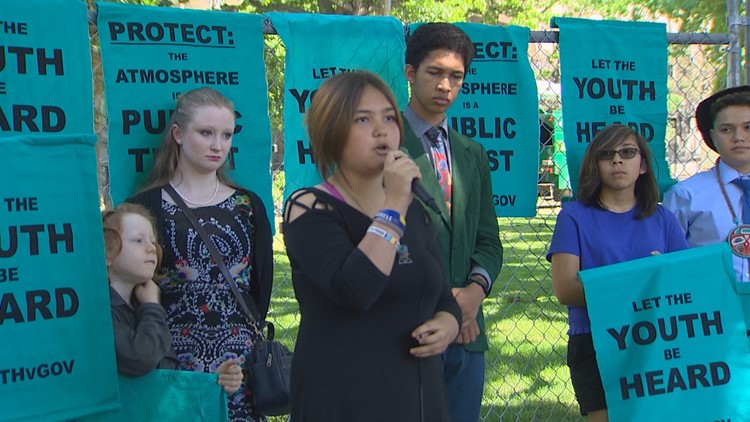A group of kids who sued the Washington Department of Ecology over carbon emissions was back in court Friday arguing a different and much broader case that their constitutional rights are being violated.
This time they're suing Washington State Governor Inslee, the Department of Ecology and several other groups. They're challenging the entire energy and transportation system, arguing its greenhouse gas emissions are unconstitutional because their effect on climate change violates their right to a healthful environment as well as equal protection under the law.
"We have no time to wait for standard slow legislative procedures to take their action and their course," said one of the plaintiffs, 17-year-old Aji Piper.
Along with their attorneys and several affiliated groups, they're asking a judge to hear their case that Washington needs to reduce its carbon emissions 96 percent by 2050.
The state's attorney argued that you can't challenge a system, like the transportation system, as being unconstitutional. The Department of Ecology has said it's doing all it can under its authority. The defendants have said they share the goal of the kids but believe a lawsuit is the wrong approach. Instead, they argued, the kids should participate in the legislative process.
"Some of our plaintiffs are young enough that by the time they're old enough to vote, it will be too late," Piper said.
Some of the kids have spent 4 years, or a third of their life, in court on this issue.
Judge Michael Scott said he will decide by August 24 whether the court has jurisdiction to hear the case.
"When you're dealing with issues that broadly, you need legislative action to really reach a comprehensive solution," said Ecology Air Quality spokesman Andrew Wineke.
The targets adopted by the Legislature in 2008 were:
- By 2020, return to 1990 levels
- By 2035, 25 percent below 1990 levels
- By 2050, 50 percent below 1990 levels.
In 2016, Ecology recommended that the Legislature make those targets more stringent:
- 2020, still 1990 levels
- 2035, 40 percent below 1990
- 2050, 80 percent below 1990
The Legislature has not yet acted on that recommendation.



